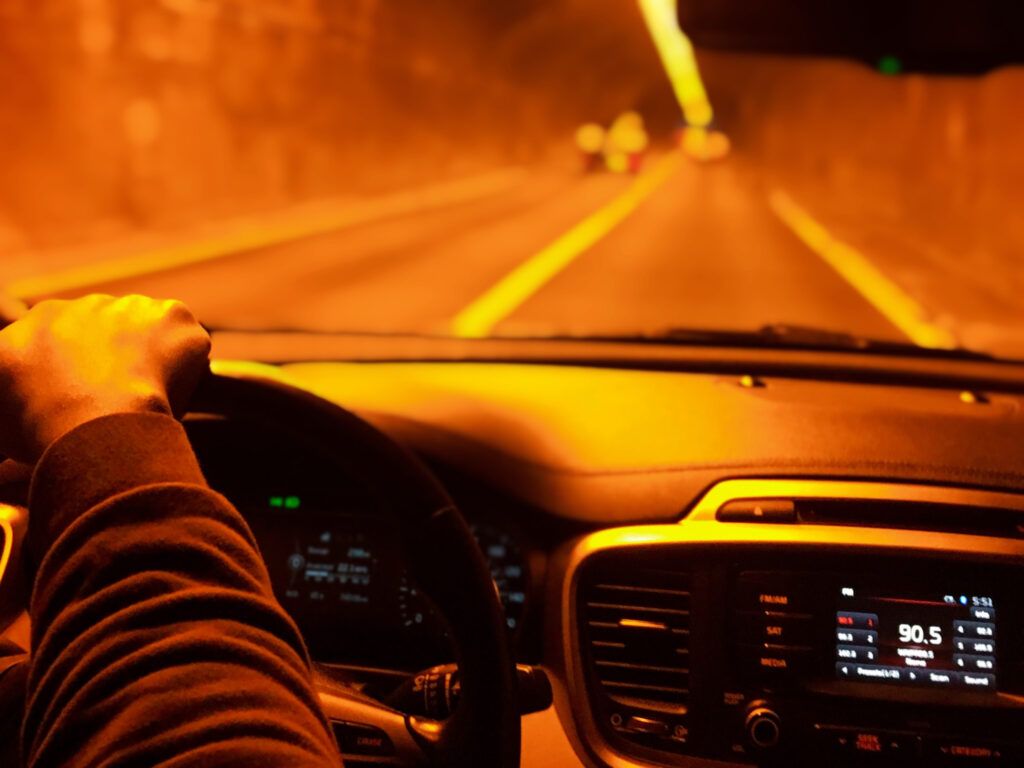Impaired Driving: Definition, Charges, and Penalties

Driving under the influence of alcohol and drugs puts your and other peoples’ lives at risk. Under the law, impaired driving can lead to serious penalties. If you find yourself facing an impaired driving charge, it is important to know what it means and what to do. In such situations, it’s crucial to contact an impaired driving lawyer who can provide expert legal advice and representation to navigate the complexities of your case and advocate for the best possible outcome.

Definition of Impaired Driving (According to the Criminal Code)
As a simple description, impaired driving occurs when you consume drugs or alcohol and it impairs your ability to operate a motor vehicle.
The Criminal Code defines impaired driving under section 253. Impaired driving is defined as anyone who (a) operates a motor vehicle or vessel, or operates or assists aircraft or railway vehicle, (b) has the care or control of a motor vehicle, vessel, aircraft or railway vehicle, (c) whether or not the vehicle is in motion, (d) is impaired while the person has the ability to operate the vehicle in question, and (e) is impaired by drugs or alcohol.
As of 2018, the person charged with the offence does not need to be driving the car, they only need to be in the care and control of the car. In other words, you can be charged with impaired driving if the car is in the park while you are behind the wheel.
What Does Impaired Mean?
Impaired driving is commonly just thought of as drunk driving; however, it is a much lower threshold. Impairment refers to consuming drugs or alcohol, or both, and the consumption of the substance(s) impacting your ability to operate a vehicle. The driver does not need to be drunk or intoxicated or that their blood-alcohol or blood-drug limit is over the legal limit. Rather, the only requirement is that their driving ability is impacted by their consumption.
Prohibited Levels of Alcohol, Cannabis or Other Drugs
Drugs and alcohol each have their own prohibited levels of consumption. If you are under the age of 21 or a commercial driver, there is zero tolerance for any alcohol or drugs in your system while operating a motor vehicle.
Alcohol
A person cannot get behind a wheel with a blood alcohol concentration (BAC) of 80mg or more per 100 mL of blood. On a BAC test, this translates to 0.08%. However, legal consequences do not depend on a BAC test level of 0.08% or above. If you are anywhere in the warning range of 50 to 100mg, the police have the ability to suspend your licence under the Highway Traffic Act.
Cannabis (THC)
For THC consumption, there are two levels of prohibited blood levels of THC. First, if there is between 2 and 5 nanograms(ng) of THC per mL of blood, it is a less serious offence. However, if there is more than 5ng of THC per mL of blood, it is a more serious offence.
Combination of Alcohol and Cannabis
If you are under the influence of both cannabis and alcohol, there is a lower acceptable limit of both alcohol and cannabis. The alcohol consumption cannot exceed 50mg or more per 100mL of blood and the THC cannot exceed 2.5ng or more per mL of blood.
Other Drugs
The Criminal Code also outlines limits for other drugs such as LSD, “magic mushrooms,” ketamine, cocaine, psilocybin, PCP, 6-mam and methamphetamine. Any detectable amount of any of the aforementioned drugs within two hours of driving is prohibited. For a common party drug, GHB, the limit is 5 mg or more per litre of blood because humans naturally produce some levels of GHB.
What Must the Crown Prove for an Impaired Driving Conviction?
The Crown must prove, beyond a reasonable doubt, that you were under the care and control of the motor vehicle and impaired at the time of the charge. Any reasonable doubt of the defendant’s guilt means the judge should dismiss the charge against the accused. In other words, the accused will be found not guilty if there is reasonable doubt.
Charges and Penalties for Impaired Driving in Canada
Penalties for impaired driving differ based on whether the charge is for alcohol-impaired driving or drug-impaired driving or a combination.
Alcohol-Impaired
Charge:
The charge for impaired driving by alcohol is an alcohol-impaired driving charge. If your blood alcohol concentration is 80mg per 100mL of blood or over within 2 hours of being in the care and control of the motor vehicle, you can be charged.
Penalty:
If this is your first offence, there is a mandatory minimum fine of $1000 with a maximum penalty of 10 years in prison.
If this is your second offence, there is a mandatory minimum penalty of 30 days in prison with a maximum penalty of 10 years in prison.
If this is your third offence, there is a mandatory minimum penalty of 120 days in prison with a maximum of 10 years in prison.
Drug-Impaired
Charge:
The charge for impaired driving by drugs is a drug-impaired driving charge. If you have 5ng or more of THC per mL of blood within 2 hours of being in the care and control of the motor vehicle, you can be charged.
If there is any detectable level of LSD, “magic mushrooms,” ketamine, cocaine, psilocybin, PCP, and methamphetamine or 6-mam within 2 hours of being in the care and control of the motor vehicle, you can be charged.
Or, if you have 5mg or more of GHB per 1 litre of blood within 2 hours of being in the care and control of a motor vehicle, you can be charged.
Penalty:
If this is your first offence, there is a mandatory minimum penalty of a $1000 fine with a maximum penalty of 10 years in prison.
If this is your second offence, there is a mandatory minimum penalty of 30 days in prison with a maximum penalty of 10 years in prison.
If this is your third offence, there is a mandatory penalty of 120 days in prison with a maximum penalty of 10 years in prison.
Combination
Charge:
You can be charged with a combination of drug-impaired driving and alcohol-impaired driving if your BAC is 50mg per 100mL of blood and have 2.5ng or more of THC per 1mL of blood within 2 hours of being in the care and control of the motor vehicle.
Penalty:
If this is your first offence, there is a mandatory minimum fine of $1000 and a maximum sentence of 10 years in prison.
If this is your second offence, there is a mandatory sentence of 30 days in prison with a maximum of 10 years in prison.
If this is your third offence, there is a mandatory minimum of 120 days in prison with a maximum of 10 years in prison.
Refusal to Comply
Charge:
You may be tempted to refuse a drug or alcohol test in hopes that it will prevent a charge. This is not the case. If you refuse to comply with a demand for a sample, you can be charged for the refusal.
Penalty:
There are mandatory minimum penalties for refusing to comply with a sample demand.
For a first offence, the mandatory minimum is a $2000 fine.
If this is your second offence, there is a mandatory minimum sentence of 30 days in prison with a maximum of 10 years in prison.
If this is your third offence, there is a mandatory minimum of 120 days in prison with a maximum of 10 years in prison.
Ontario-specific Drug-impaired Driving Charges and Penalties: Summary Convictions
Charge:
If you drove with over 2ng and less than 5ng of THC per mL of blood in your system within 2 hours of driving, you can be charged by way of summary conviction.
Penalty:
The maximum penalty for a summary conviction of drug-impaired driving is a $1000 fine.
Charge:
If you are charged with drug-impaired driving causing bodily harm, the Crown can proceed by way of summary or indictment.
Penalty:
If the Crown proceeds by way of summary conviction, there is a maximum penalty of 2 years in prison less a day.
If the Crown proceeds by way of indictment, there is a maximum penalty of 14 years in prison.
Charge:
The law treats drug-impaired driving as causing the death of another highly serious.
Penalty:
This charge can only be treated by way of indictment. The maximum penalty for impaired driving causing death is life in prison.
Charge:
If this is your first offence, and your BAC is between 80mg to 119mg, the penalty is less severe.
Penalty:
The mandatory minimum for this charge is a $1000 fine.
Charge:
If this is your first offence, and your BAC is between 120mg and 159mg, the penalty is a little more serious.
Penalty:
The mandatory minimum for this charge is a $1500 fine.
Charge:
If this is your first offence, and your BAC is 160mg or more, the minimum penalty is more severe.
Penalty:
The mandatory minimum fine for this charge is $2000.

Contact an Experienced Criminal Defence Lawyer Today
Do you find yourself facing an impaired driving charge? If so, contact our Toronto DUI lawyers today. We have extensive experience successfully defending charges for impaired driving charges. We will help protect you and your reputation. Contact us today at (416) 658-1818 to start building your defence.
This article provides general legal information only and should not be construed as legal advice. Laws and their interpretation may change, and the application of law to specific circumstances requires professional legal assessment. If you have questions about a legal matter, please contact us for a free consultation.

Jonathan Pyzer, B.A., L.L.B., is an experienced criminal defence lawyer and distinguished alumnus of McGill University and the University of Western Ontario. As the founder of Pyzer Criminal Lawyers, he brings over two decades of experience to his practice, having successfully represented hundreds of clients facing criminal charges throughout Toronto.





